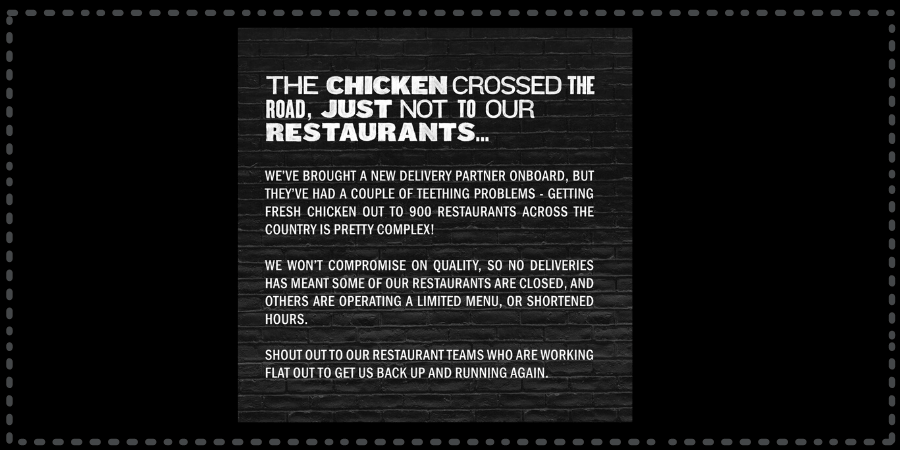MBA in India is one of the most popular programs. If you are a post-graduate student, then it is natural that you must have heard your friends thinking of pursuing an MBA. The MBA program from a reputed B-School exposes you to several MBA jobs and entrepreneurial opportunities both in India and abroad. It is because an MBA provides an understanding of business and its administration along with managing business operations.
Now, we are sure you’ve read many blogs discussing post-MBA career paths to figure out the best MBA jobs you can work for you after your education. But we are not just talking about one or two MBA career paths. This blog will give you the details of all the career options you can pursue, post your MBA.

So, get ready to be spoilt for choice. Literally.
Also read: Top 40 Reasons to Do an MBA
If you are keen to know about what MBA jobs lay ahead of you, you have arrived at the right place. This blog will give you a clear picture about:
1. Factors To Consider Before Choosing A Job
2. Salary Offered To MBA Graduates In India
3.1 Technology
3.2 Sales And Marketing
3.3 Consulting
3.4 Operations
3.5 Finance
3.6 Entrepreneurship
4. The Different Courses You Can Choose After An Mba
Let’s start with the different factors you should consider before choosing a job after your MBA.
Also read: MBA – Full Form, Cost, Duration, Salary & Everything You Need to Know
Note: Stick with us till the end, and we will discuss some special courses that you can do post your MBA!
1. Factors To Consider Before Choosing A Job After MBA In India
Getting a job offer is an adrenaline rush but before you jump to the seventh heaven, take a look at some of the key pointers that you should keep in mind before you accept a job offer.
I. Job Profile: Our first advice to you is to be smart. Do not accept every job offer that comes your way. Instead, be specific about what job you want to work for. We understand that finding the right job involves time in this competitive market, but we suggest you have patience and network extensively. Also, do not make the mistake that most students make, accepting an MBA job role purely based on the pay. We suggest you think about the job title as it will prove beneficial in the long run to develop your career.
II. Organisation: Where you work will define how you will perform as well. That is why it is crucial to analyze your work in a given organization. You should check for the scope for your career development, the company’s goodwill (you can check out Glassdoor), plans, and their employees. Once you analyze these factors, you will be able to judge whether you should take up the job offer in the given company or not.
III. Job location: Say you get an offer overseas, and you are excited. You are all packed to go and take this opportunity head-on. However, we suggest you hold on a second and check whether your cost of living, accommodation and transportation makes sense with the package and the job opportunity offered to you. Unless you make a detailed comparison, you will be in for a big surprise, especially with the current situation of COVID.
IV. Salaries: One of the reasons you might have or wish to pursue an MBA is for the hefty package. That is why you must compare all your offers and clarify which company offers you better compensation for your skillset. You must know that MBA salaries are high everywhere globally; that’s why you must choose the package that suits you.
V. Working hours: ‘Work-life balance’ is a common word nowadays, and while many companies speak eloquently about this topic, the reality may be different. If you are someone who likes to have fixed working hours so that you can devote the rest of the time to your family and passion, make sure your company’s thinking aligns with you. Otherwise, it will be messy.
We hope you put considerable thought before accepting any job offer. These pointers, we hope, are able to point you in the right direction.
Now that we have discussed what factors you should consider before you accept a job offer, let us look at different salary packages offered to MBA graduates in India.
Also watch: How to Handle the ‘Employability’ Factor in MBA Applications (Webinar)
2. Salary Offered To MBA Graduates In India
We present you the minimum, average, and the highest MBA salaries offered to MBA graduates in India.
| Job Profile/Role | Minimum Salary
Lakhs Per Annum (₹) |
Average Salary
Lakhs Per Annum (₹) |
Maximum Salary
Lakhs Per Annum (₹) |
|---|---|---|---|
| Operations Manager | 3.89 | 7.97 | 10.60 |
| Senior Business Analyst | 4.76 | 9.44 | 11.70 |
| Human Resource Generalist | 1.59 | 2.94 | 6.78 |
| Marketing Manager | 2.98 | 7.56 | 11.90 |
| Business Development Manager | 2.59 | 6.01 | 11.40 |
| Human Resources Manager | 3.19 | 7.38 | 11.70 |
| Business Development Executive | 1.81 | 3.18 | 5.93 |
| Project Manager (IT) | 5.01 | 12.38 | 20.00 |
| Assistant Human Resources Manager | 2.92 | 5.31 | 9.42 |
| Relationship Manager | 2.03 | 4.24 | 9.59 |
| Marketing Executive | 1.67 | 3.05 | 5.54 |
| Business Analyst (IT) | 3.02 | 5.96 | 11.00 |
| Area Sales Manager | 4.07 | 7.81 | 11.40 |
| Senior Sales Executive | 2.20 | 3.99 | 7.22 |
| Executive Assistant | 1.48 | 3.24 | 8.09 |
| Financial Analyst | 2.23 | 4.38 | 8.47 |
| Regional Sales Manager | 5.57 | 11.83 | 20.00 |
| Finance Manager | 5.22 | 11.42 | 23.00 |
| Account Manager | 3.39 | 7.00 | 15.00 |
| Management Consultant | 5.62 | 13.50 | 20.00 |
Note: These figures are approximate values and can differ for individuals and companies.
Credit: College Dekho
Now that we have covered the salary expectations, we are sure you want to know the various MBA job opportunities that await you in different sectors. Let us first discuss the career options in the Technology sector.
Note: This blog will mainly focus on MBA jobs and careers in India but, we will also share some of the top international B-Schools that are specialized in various fields to help you make an informed decision.
3. MBA Career Paths
In the upcoming sections, as we discuss the various MBA jobs; we will also provide a detailed list of the best B-Schools in India and abroad where you can pursue your MBA to get a step-up in your career.
3.1 Technology
Before discussing the MBA jobs in the tech field, let us inform you that even if you do not have a tech background, there’s no need for you to shy away from this exciting and ever-evolving field. All you need is the passion for technology, basic knowledge, and sound logic behind your decision to make a career switch.
I. MBA career paths in the technology field: As we said earlier, if you do not have a tech background, it is all right in terms of education or work experience. Take this simple real-life example. You were given a mobile phone when you were 15 years old. You never had to put all the pieces of the phone together to use, did you? No. All you had to do was to use it responsibly and recharge it whenever necessary.
Your jobs after MBA in technology will be like that – you will not have to do the technical work but ensure the work gets done.
Now, let us look at the career options that you can pursue in the field of technology.
• Project Management: Are you looking for an MBA job that will enable you to put your penchant for technology to good use? Apart from being tech-savvy, do you consider yourself a born manager?
If you’re nodding your head in the affirmative to both these questions, you could excel at project management. As a project manager, you will be given the onus of overseeing a company project right from scratch. Wait, it gets better.
What if you become the project manager of an IT firm? Or what if you get to manage projects in a company like Samsung or Apple? Won’t this be like a dream come true for you? If you think it would be, then you will be an excellent fit for this role.
Here’s an example of a tool that might come in handy when you become a project manager – You can assign, manage, and overlook your team members’ tasks here.

• Analytics: Data is king. And big data analytics is indeed big when it comes to the IT sector. Analytics plays a significant role in companies these days. The insights gathered from data analytics are used to determine business trends and to make informed business decisions.
In fact, in recent years, the job of a data scientist or big data analyst has seen unprecedented growth and popularity, so much so that organizations are willing to shell out large sums of money to attract experts into the profession.
If you want to utilize your mind to analyze data and come up with relevant insights for a company, this is your space.
To learn more about these job opportunities, read Post MBA careers: Technology
Now let us look at some of the best B-Schools renowned for technology in India and abroad.
| Indian B-Schools | Indian School of Business |
| Indian Institute of Management – Bangalore | |
| International B-Schools | MIT Sloan School of Management |
| Tepper School of Business | |
| University of California, Los Angeles | |
| Haas School of Business | |
| Johnson Graduate School of Management | |
| Boston University | |
| Krannert School of Management | |
| Scheller College of Business | |
| Knight Hall and Bauer Hall, John M. Olin School of Business | |
| Fisher College of Business |
Want to know about the tech MBA programs in the world? Here are the Top 10 Global Tech Programs for 2021.
Now that you have a clear idea about the Technology sector, let us move on to the interesting and fast-paced world of sales and marketing.
3.2 Sales And Marketing
Sales and marketing careers have always been popular among MBA graduates. There are many opportunities in the sales and marketing field, and they make for highly fruitful careers.
Are you someone who can talk and convince someone to buy a product or service? Or are you someone who can come up with a plan to increase sales in your company? Then you will be the perfect fit for roles in the sales or business development departments.
On the other hand, if you have an eye for marketing products or coming up with strategies to reach out to your target market, you will perform well in marketing roles.
Read on to know about the MBA jobs you can choose in the fields of sales and marketing:
I. Sales/Business Development: Who do you think is responsible for the large number of new clients acquired by a company? Yes, it is the sales or business development team.
To be able to lead such a team with your knowledge and expertise is a coveted career opportunity. Be it delivering that flawless sales pitch or closing a major deal, your skills in sales can make or break an organization.
2. TEAM SEGMENTATIONS
3. GET STRATEGIES AND PROCESSES IN PLACE
4. CREATE GREAT INCENTIVES
After your MBA, getting into business development can be the perfect way to kick-start your post-MBA career or give it a much-needed makeover.
II. Account Management: The function of a salesperson doesn’t end with finding a potential customer. Most companies have a client servicing team in place to interact with customers regularly and resolve issues about the product or service
However, the gap between a business development team and a client servicing team is often filled in by the account management team. So, what does an account manager do? An account manager is responsible for constantly generating new business from existing clients.
Since this job entails exceptional communication skills, the ability to overlook the work done by the team members and one’s own, and the urge to overcome hurdles in the way, account managers are always in high demand.
III. Brand Management: Brand management is one of the most challenging segments in the field of marketing. Suppose you decide to become a brand manager. In that case, you need to be doubly sure that you’ve got excellent communication skills, foresight, creativity, and the ability to work with people across various divisions. You also need to be continuously updating yourself with the market trends.
If you step into this playing field, you will be responsible for increasing your company’s brand awareness and recall.
Remember how we all rushed out to buy Dettol hand sanitizers when the Coronavirus situation started becoming grave? Many of us wouldn’t have even asked for hand sanitizers; we would have asked the shopkeeper to hand us Dettol. That’s an example of brand awareness and recall for you. That is the impact the brand has on its consumers.

IV. Product Management: Product management doesn’t involve clients as much as it consists of the product or service itself. Any form of marketing is incomplete if you’ve not got this right. Again, creativity and foresight rank topmost in the list of prerequisites for this MBA job.
2. SUGGEST THE RIGHT FEATURES
3. BE CREATIVE
4. GET THE RIGHT PRODUCT
After your MBA, if you think you can utilize your knack for designing and describing product features to benefit your company and your future, product management might as well be the career of your choice.
V. Product Marketing: There is a very fine line between product management and product marketing.
While the management bit requires you to envision the product’s selling features, marketing requires you to know what needs to be done once the product is ready.
As a product marketing expert, you will need to shoulder responsibilities such as creating product awareness, educating potential buyers, and pricing the product.
You need to know about all the marketing opportunities that you can utilize.
If you are interested in product marketing, here’s another career option that you might find exciting – What to Do After MBA: Here’s How You Can Become a Marketing Manager
We had a student at CrackVerbal, Rahul Chowdhury, who went ahead and pursued his MBA from Kellogg School of Management in 2012. He is now the Director, Marketing at RB in New York. He takes care of Go-to-market Digital Innovation, Communication, and Activation initiatives across all Home and Hygiene brands (Lysol, Finish, Airwick, etc.) in the e-commerce space.

Now, this is one of the best career examples in the marketing field post an MBA.
Made up your mind to do an MBA? Here’s how you can select the right MBA program.
VI. Market Research: Product marketing remains a game of trial and error unless the market research expert steps in. Before launching any product, comprehensive information should be collected about the needs of customers.
It is also essential to gauge the tactics employed by competitors for similar products. This is especially important if you’re targeting a new demographic profile or an unfamiliar geographical area.
Here is an online tool that will help you conduct your market research efficiently.

If you love studying consumer behavior and are passionate about statistical figures and data, go ahead and join the market research team in a company!
VII. Online Media: This is another field of work that many MBA graduates now find alluring. With almost all businesses seeking an online presence, an online media specialist is responsible for the company’s online marketing and SEO needs.

An online media specialist needs to prove their mettle in all facets of online marketing, be it web analytics or social media marketing, or paid search ads, to shine in their career.
Are you thinking of specializing in Marketing and Sales? Check out Post-MBA Careers: Sales and Marketing for more information on the career opportunities available.
Here are some of the top Indian and international B-Schools renowned for Sales and Marketing:
| Indian B-Schools | International B-Schools |
|---|---|
| New Delhi Institute of Management | Kellogg School of Management |
| GNIOT Institute of Management Studies | Harvard Business School |
| Indian Institute of Management, Lucknow | Stanford Graduate School of Business |
| Department of Management Studies, IIT Delhi | Booth School of Business |
| XLRI Xavier School of Management | Haas School of Business |
| MDI Gurgaon – Management Development Institute | Duke University |
| Woxsen University | Ross School of Business |
| Indian Institute of Technology, Roorkee | UCLA Anderson School of Management |
| DoMS IIT Madras – Department of Management Studies | Marshall Business School, USC |
Credit for Indian B-School list: Shiksha.com
Want to know about the best one-year MBA programs in the US? Here are the Top 10 One-Year MBA Programs in the US.
3.3. Consulting
Consultants are in great demand these days. They can either be a part of a company’s in-house team or be an external advisor. Their main responsibility is to help companies identify problems and suggest possible solutions to those.
However, there are close to four types of consulting based on the problem they deal with. Here are some of the job opportunities that come under the gamut of consulting:
I. Strategy Consulting: You can opt to become a strategy consultant if you have a penchant for making long-term plans and devising strategies to help a company grow as a brand.
Strategy consultants need to work in tandem with the highest authorities in an organization. As a strategy consultant, you will have to recommend plans and policies to these decision-makers and work during the pre-implementation phase.
If someone wants to build a billion-dollar company, you could be the person strategizing it. You will have to come up with plans that will ensure that the company achieves its goal.
II. Operations Consulting: The scope of an operations consultant is different from the roles and responsibilities of a strategy consultant.
Instead of developing strategies that will help an organization in the long run, an operations consultant addresses current issues that affect the progress of a business.
Remember when the chicken crossed the road, but not to the KFC outlets. That’s a catastrophe that an operational consultant can help companies avoid.

This kind of consulting, unlike strategy consulting, involves working hand-in-hand with the decision-makers during the implementation and post-implementation phase. As an operations consultant, it will be your responsibility to ensure that the business needs function smoothly.
III. Technology Consulting: A technology consultant must inform companies about technologies that they can use to achieve the company objectives. This includes work on IT compliance of the company, data analytics, information security, and scalability.

Other than having an MBA, a technology consultant should be adept in the intricacies of the IT discipline.
IV. HR Consulting: From recruitment to employee engagement, an HR consultant is considered the superhero of any business. As an HR consultant, an MBA degree helps you learn how to frame human resource policies, manage people and address their concerns tactfully.
As an HR consultant, you will also have to advise the management on administering human resources policies and procedures.
You will have to constantly help the company develop, revise and implement HR policies in a company.
Here are the top Indian and international B-Schools renowned for Consulting:
| Indian B-Schools |
|---|
| BITS-Pilani |
| Indian Institute of Management, Rohtak |
| Indian Institute of Management, Calcutta |
| Indian Institute of Management, Bangalore |
| Indian Institute of Management, Ahmedabad |
| XLRI Jamshedpur |
| FMS-New Delhi |
| Indian Institute of Management, Indore |
| Indian Institute of Management, Lucknow |
| Indian Institute of Management, Kozhikode |
Credit: Shiksha.com
| International B-Schools |
|---|
| Kellogg School of Management |
| INSEAD |
| Tuck School of Business |
| Harvard Business School |
3.4. Operations
Just as any business cannot take off without its sales function, it cannot sustain itself without a strong operations team. The operations function deals with the delivery of a service or product to customers. As long as a firm has processors, suppliers, and customers, there is an opportunity for the operations team. In short, every company will have an operations team.
If you are interested in pursuing a career in operations post your MBA, check out the job opportunities available within the scope of operations here:
I. Operations Management: If you’ve always liked keeping track of trends in supply chain management and logistics, chances are you’ll excel in operations management.
Operations management deals with framing and implementing business practices that help an organization carry out day-to-day business effectively.
Be it optimal utilization of resources or improvement of productivity; an operations manager has to shoulder a wide range of responsibilities, depending on the level at which he or she works.
II. Supply Chain Management: Any company that produces products needs a supply chain manager to ensure that there is someone to manage the storage and use of raw materials and manage the company’s inventory.
A supply chain manager is responsible for the logistics of the raw materials to the company, its utilization to make the products, and maintaining its inventory. They also need to maintain the delivery time of products as well.

Now that we have covered quite a bit of information about Operations, let us share with you the list of top Indian and international B-Schools that specialize in Operations:
| Indian B-Schools |
|---|
| XLRI |
| IIM Bangalore |
| IIM Calcutta |
| NITIE, Mumbai |
| SPJIMR |
| IIM Lucknow |
| SIOM, Nasik |
| SJMSOM, IIT B |
| NMIMS |
| ISB |
| International B-Schools |
|---|
| MIT Sloan School of Management |
| Ross School of Business |
| Tepper School of Business |
| Krannert School of Management |
| McCombs School of Business |
| UNC Kenan-Flagler Business School |
Credit: InsideIIM
To know in detail about a career in operations, read Post-MBA Careers: Operations
3.5. Finance
Who doesn’t love money? If you eat, sleep, and drink money, and if you’re keen on helping a company manage their moolah, you might want to consider a rewarding career in finance.
But, you might want to note that unlike making money, it might be a lot harder to manage a company’s finances for them.
Here are the ample career options you can explore in the field of finance after an MBA:
I. Corporate Finance: If you were one of those students who have a love affair with numbers, or if you have an affinity to statistics, you could consider corporate finance as a successful career option.
In such an MBA job role, you will be working in the Chief Finance Officer’s office of a large company and making decisions related to investments, shares, and credits, keeping in mind the company’s budget.
2. CAPITAL FINANCING
3. DIVIDENDS
4. RETURN OF CAPITAL
From ensuring that your company has adequate finances to choosing the right source of funds and utilizing them to generate maximum revenue for the firm, a finance manager has to shoulder big responsibilities. This role would also include capital budgeting, hedging funds, and making important investment decisions.
II. Investment Banking: If terms such as “capital markets”, “acquisitions”, “mergers”, “bond financing” and “underwriting of deals” leave you exhilarated instead of flustered, you should undoubtedly consider becoming an investment banker.

As an investment bank associate, you will be responsible for assisting organizations to raise funds for expanding their business. You would also have to advise the company based on its financial assets and liabilities.
III. Private Equity: A Private Equity Analyst helps companies invest in other firms through various funding sources, such as IPOs (Initial Public Offerings) and Equity Financing.
This role involves extensive research and analysis using a variety of financial modeling strategies. An expert in private equity manages the investment funds of a company.

This career choice involves a thorough knowledge of the different types and sizes of firms. It also necessitates the ability to make informed investment decisions.
IV. Venture Capital: Venture capitalists are responsible for performing due diligence on potential business enterprises that corporate establishments have decided to invest in. Before an investment is finalized, a venture capitalist must scrutinize any startup’s financial documents and bank statements.
Also read: MBA Admissions Committee & Venture Capitalists: 5 Aspects They Look For in Their Prospects
If you have been interested in finance and investments, you would have watched the show “Shark Tank”. Most of the so-called “Sharks” in the show are Venture Capitalists or VCs.
So, if you become a venture capitalist, a business’s potential for growth and profit will be assessed, and informed decisions will be taken based on your report. Hence, if you are drawn to wherever money is, this could be a coveted job opportunity.
Below, we present you the list of top Indian and international B-Schools that are well known for finance.
| Indian B-Schools | International B-Schools |
|---|---|
| Indian School of Business | Wharton School of the University of Pennsylvania |
| Indian Institute of Management, Ahmedabad | Harvard Business School |
| SP Jain, Mumbai | Stanford Graduate School of Business |
| Narsee Monjee, Mumbai | Chicago Booth School |
| Taxila Business School, Jaipur | NYU Stern School of Business |
| Lal Bahadur Shastri Institute of Management, Delhi | Johnson Graduate School of Management |
| Xavier Institute of Social Service (XISS) Ranchi | London Business School |
Credit for Indian B-Schools: Taxila.in
If you need more information, read our blog post on Post MBA Careers: Finance
3.6. Entrepreneurship
In recent years, the trend of pursuing an MBA to become an entrepreneur has drastically taken off.
Though starting a business was earlier considered a risky option and the “business mentality” was often looked down upon, times have changed.
Many working professionals are ready to give up their high-paying jobs and begin a venture of their own—all for the satisfaction of treading a different path.
So, if you think you have it in you to become an entrepreneur, you should go for it.
Now, we have discussed the various sectors where you can get a fulfilling MBA job. But hold on, there is more! We promised you in the beginning of this blog that we will help you with some unique courses that you can pursue post your MBA to add an extra oomph to your career! Below, we present to you four such courses that you can pursue after your MBA.
4. The Different Courses You Can Choose After An MBA
We know, you may be wondering, ‘I have already done my MBA, why should I do another course?’
That is because these courses can improve your career, improve your earning and the best thing about them is that you can continue working while you complete these courses! That means you will be just upskilling yourself even more.
Let us look at some of the best courses that you can pursue post-MBA.
I. Certification in Risk Management Assurance (CRMA)
The Institute of Internal Auditors (IIA) offered this certification course and means for, yes, you guessed it, internal auditors and risk management professionals. If you wish to become a trusted advisor to the audit committee and handle management in the critical areas of risk assurance, governance processes, quality assurance, or control self-assessment. In that case, the CRMA designation is for you.
To sit for this exam, you do not have a fixed curriculum, and you can do your self-study with the various resources available. However, to be eligible for this exam, you must have these qualifications:
• You should be a graduate
• Have two years post-secondary education with five years of internal audit experience
• Or have seven years of internal audit experience.
Kindly note that you have to submit a duly signed character reference form.
The exam comprises of two sections-
• Section 1 consists of 125 questions
• Section 2 (Main exam) consists of 100 multiple-choice questions
The application fee varies as per your geography and institute, and the cost of the exam is $380 for members and $495 for non-members.
II. Chartered Financial Analyst (CFA)
If you are interested in Finance, then the CFA program is made for you. Once you complete this program, you will find jobs in corporate finance, investment banking, equity research, and portfolio management. For those who may not know, this degree is internationally acclaimed and will help you become a credible professional in the finance world.
This exam has three levels and requires a lot of effort and dedication to complete. To complete all three levels, you would need four years. But don’t let that deter you. You can continue this program while working.
Coming to India, the CFA was earlier awarded by the ICFAI University or by the CFA Institute, USA, but now, it is different. From 2012, ICFAI stopped issuing CFA certification except for those already registered with them. Those who’ve obtained their CFA through ICFAI would be required to use CFA (ICFAI).
To be eligible for the CFA, you would need a bachelor’s degree
This program has a one-time enrolment fee of $450 and an exam registration fee that varies on the time of registration, from $650 for early bird (March), $950 standard (August), and $1,380 for late registration (September), for each of the levels.
III. Financial Risk Manager (FRM) Exam
If you are interested in a career in risk management, then the FRM exam is ideal for you. This is an internationally recognized certification exam offered by the Global Association of Risk Professionals (GARP).
There are two levels of examination involved and would require an average of 275 hours to prepare for the Part 1 exam. The pre-requisites for the FRM are as follows:
• Candidates who clear the Part 1 exam will have to pass the FRM part 2 within four years.
• Candidates must possess two years of work experience
IV. Certified in Production and Inventory Management (CPIM)
The CPIM is a globally recognized certification with five modules with two CPIM exams, Part 1 and Part 2. This certification is ideal for those who wish to excel in a career in Supply Chain Management. It helps provide a thorough understanding of a company’s production planning and inventory management in global operations.
The fee for APICS PLUS members is $495 per exam, and for CORE members/non-members, it is $690 per exam.
We hope that these four courses would add significant value to your resume and your career. Let us remind you that the courses we just discussed would need considerable time and money. That is why you need a lot of clarity on whether the course you choose is aligned with your career.
Before we sign off, let us share that choosing a career path is not an easy task. You need to not only understand industry trends but also know which role you can fit right in. Now that we have listed out all the MBA jobs and career paths for you, it should be easy for you to plan your work-life after the MBA. And if you would like to know about any other post-MBA career options other than the ones that we have listed here, let us know in the comments below.
If you are going to apply for an MBA, you might want to get your profile evaluated. You can talk to an expert and see if your profile is good enough for your MBA application.
